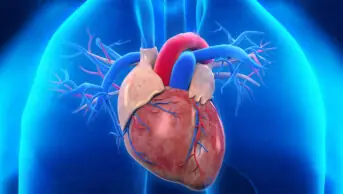Colchicine, which is derived from the Colchicum autumnale plant, has been around for millennia, having first been recorded as a herbal remedy for joint pain in 1500BC, before being isolated as a drug in 1820.
Until recently, the generic anti-inflammatory drug was only indicated in the UK and United States for the prophylaxis and treatment of gout and familial Mediterranean fever[1,2].
But, in June 2023, the US Food and Drug Administration (FDA) made the decision to approve colchicine for secondary prevention of cardiovascular disease (CVD)[3].
The move was in response to a growing evidence base for its clinical efficacy amid a dramatic increase in the number of global deaths from CVD over the past 30 years, from 12.1 million in 1990 to 20.5 million in 2021[4].
The main cause of CVD, which includes myocardial infarction (MI) and stroke, is atherosclerosis[5]. The disease, once understood to simply be an accumulation of lipids between the vessel walls, is now considered an inflammatory condition[1].
Research into the role of inflammation in atherosclerotic CVD has been gaining momentum in recent years, with the publication of numerous studies evaluating the effects of anti-inflammatory agents.
A randomised controlled trial, published in The New England Journal of Medicine in September 2017, was the first to confirm that blocking inflammation significantly reduced recurrent cardiovascular events, independent of lipid-level lowering[6].
The CANTOS trial assessed the use of canakinumab, a monoclonal antibody targeting interleukin (IL)-1β, among 10,061 patients with a history of heart attack. Researchers then tracked the patients for a median of 3.7 years and recorded the incidence of non-fatal MI, non-fatal stroke, or cardiovascular death.
The study found that a 150mg dose of canakinumab every 3 months led to a significantly lower rate of recurrent cardiovascular events (hazard ratio vs. placebo 0.85).
Despite the positive results, canakinumab was associated with a higher incidence of fatal infections compared with placebo; it is not licensed for the treatment of CVD.
However, since the CANTOS trial, there have been two large randomised controlled trials examining the anti-inflammatory effects of colchicine in CVD — COLCOT and LODOCO2.
Here, we examine the evidence for and against the use of colchicine in CVD, to assess where the drug sits in the management of CVD and whether UK clinical practice is missing out on a treatment that could fight the rise in cases.
The case for:
Clinical efficacy
The use of colchicine in cardiology is not a foreign concept. The anti-inflammatory effects of the drug are well established and it has been a viable treatment option in pericarditis since 1987[7,8].
In 2013, a small randomised controlled trial in Australia involving 532 patients showed promising results for colchicine in the prevention of secondary CVD[9].
It was almost too good to be true because the effect size was enormous
Antonio Abbate, Ruth C. Heede professor of cardiology at the Berne Cardiovascular Research Center, Virginia
The LODOCO trial, published in the Journal of the American College of Cardiology, observed that use of colchicine 0.5mg/day along with statins and other secondary prevention therapy, resulted in a 67% lower risk of recurrent cardiovascular events compared with no colchicine (hazard ratio 0.33).
“It was almost too good to be true because the effect size was enormous. So it needed to be replicated,” says Antonio Abbate, cardiologist and Ruth C. Heede professor of cardiology at the Berne Cardiovascular Research Center and Heart and Vascular Center, Virginia, United States.
Findings from the LODOCO and CANTOS trials sparked two large placebo-controlled randomised studies, evaluating the impact of colchicine 0.5mg/day following an acute cardiovascular event and chronic coronary disease.
The COLCOT trial reviewed the effect of colchicine in reducing the risk of recurrent cardiovascular events in patients with MI in the past 30 days, who were treated according to national guidelines, which included the intensive use of statins[10].
The study, published in The New England Journal of Medicine in 2019, included 4,745 people across 167 sites in 12 countries, with a median follow-up of 22.6 months. Researchers found colchicine was associated with a 1.6% absolute reduction in recurrent cardiovascular events compared with placebo (5.5% vs. 7.1%; hazard ratio 0.77).
A year later, the LODOCO2 trial was published in The New England Journal of Medicine[11]. The follow-up study included 5,522 participants with chronic coronary disease across 43 centres in 2 countries, with a median follow-up of 28.6 months. Colchicine was associated with fewer cardiovascular events — cardiovascular death, MI, ischaemic stroke, or coronary revascularisation owing to ischaemia — compared with placebo (6.8% vs 9.6%; hazard ratio 0.69).
“I think the evidence now is overwhelming that blocking the inflammation works,” says Abbate.
“Colchicine and canakinumab all work in the same aspect of inflammation; they are targeting the inflammasome and production of IL-1.”
“That is important because not any anti-inflammatory drug would work. You need to target the innate immunity inflammasome IL-1 cascade,” he explains.
Abbate refers to a 2019 trial, which tested the anti-inflammatory effects of methotrexate in stable atherosclerosis [13]. Researchers found that low-dose methotrexate did not reduce the levels of IL-1β, IL-6, or C-reactive protein (CRP) — the IL-1 cascade — and did not result in fewer cardiovascular events than placebo (hazard ratio 0.96)[12].
Colchicine is known to interfere with microtubule functions, leading to disruption of neutrophil functions and inflammasome blockade[1].
Guideline inclusion
The latest guideline from the American Heart Association and American College of Cardiology on managing patients with chronic coronary disease, published in July 2023, says that clinicians may consider the addition of colchicine for secondary prevention to reduce recurrent atherosclerotic CVD, but only for those patients who remain at very high risk despite maximum tolerated, guideline-directed management and therapy until further data become available[13].
“I use colchicine a lot. It’s a great drug, but it does have side effects like many other drugs. So, I would say that this statement is reasonable,” says Abbate.
Abbate believes that if the FDA approval had arrived sooner, the wording of the recommendation in the guideline may have been stronger.
“If you did use colchicine in every single patient, you wouldn’t be wrong,” he says. “If you used it in nobody, you are wrong. Especially if patients are having recurrent events and you haven’t used this — you should.”
The case against:
Side effect profile
One of the biggest challenges for healthcare professionals in prescribing colchicine is its well-documented side effect profile, with gastrointestinal disorders listed as a common adverse reaction by manufacturers[2].
An article published in the European Heart Journal in August 2023, co-authored by Abbate, estimated that diarrhoea may lead to discontinuation of colchicine in up to 20% of patients[1].
There were a few safety worries that probably limited the generalisability and the uptake
Paul Wright, lead cardiac pharmacist at Barts Health NHS Trust
“Whilst colchicine was showing potential reductions in major adverse cardiac events, there were a few safety worries that, I think, probably limited the generalisability and the uptake of colchicine in this cohort,” says Paul Wright, lead cardiac pharmacist at Barts Health NHS Trust.
“We thought, with these lower doses of 500 micrograms a day, you can mitigate the gastrointestinal side effects. And you do to a certain extent, but it still crops up.”
In the COLCOT trial, gastrointestinal adverse events occurred in 17.5% of patients taking colchicine, with serious gastrointestinal events reported in 2.0%, although the proportions were similar in those taking placebo[10]. In LODOCO2, 1.9% of patients taking colchicine were hospitalised for gastrointestinal reasons[11].
“Some of the more worrying markers that came up in the studies were an increased risk of non-cardiovascular associated deaths and pneumonia,” adds Wright.
The LODOCO2 trial observed higher numbers of non-cardiovascular deaths in the colchicine group compared with the placebo group (hazard ratio 1.51)[11]. The study’s researchers say this “is of potential concern” but point out that the difference is not significant and could have happened by chance.
In COLCOT, pneumonia was reported as a serious adverse event in more patients in the colchicine group than in the placebo group (0.9% vs. 0.4%; P=0.03)[10].
Another concern with colchicine is its narrow therapeutic index. In some countries, the only available dosage of colchicine is 0.6mg[1]. According to Abbate, it is currently unknown how much difference the additional 0.1mg (to the dose used in clinical trials) makes to the efficacy, side effects or toxicity of the drug.
According to the American guideline, colchicine is also prone to drug–drug interactions since it is metabolised by cytochrome P450 3A4 and p-glycoprotein, key enzymes involved in drug metabolism[13].
In addition, there is currently a lack of evidence on accurate, measurable markers to assess the need for or efficacy of colchicine. “In the future, a large, randomised trial where all the biomarkers are tested before and after to try to identify what is best to look for, in which cohort, might be the way forward,” says Rani Khatib, consultant pharmacist in cardiology and cardiovascular clinical research at Leeds Teaching Hospitals NHS Trust.
“There are many trials looking at CRP [C-reactive protein] for other contexts and it might be a good marker to look at, but how colchicine is actually doing, what it’s doing, and which marker we should be measuring — that’s probably something we need to advance a little bit more in larger clinical trials.”
Polypharmacy is also an issue, adds Khatib. “Recommending colchicine does increase the pill burden, and you need to keep that in mind.”
Culture in the UK
In the UK, use of colchicine for secondary prevention of CVD is not common practice.
However, advice provided by the European Society of Cardiology (ESC) is consistent with the US guideline. The ESC guidelines, published in August 2023, recommend that 0.5 mg/day of colchicine may be considered, particularly if other risk factors are insufficiently controlled or if recurrent CVD events occur under optimal therapy[14].
The use of colchicine in CVD isn’t alien, and something we are actually exploring
Rani Khatib, consultant pharmacist in cardiology and cardiovascular clinical research, Leeds Teaching Hospitals NHS Trust
“The use of colchicine in CVD isn’t alien, and something we are actually exploring,” says Khatib.
“The feeling is that there is definitely some benefit. But the findings need to be further validated by other large-scale clinical trials.
“In the UK, colchicine is used more for tackling the residual risk than actually as a mainstream CVD-modifying agent, simply because the evidence is not as robust,” he explains.
Colchicine is not currently licensed for secondary prevention of CVD in the UK, which Wright believes will not change, despite the recent FDA approval: “It’s generic. It’s cheap as chips. I cannot see the manufacturers pushing for licence change.
“I think that’s purely one based on cost, I don’t think it’s financially viable for companies to [apply for a licence change], because the uptake is a bit variable,” adds Wright.
However, a spokesperson for AGEPHA Pharma, manufacturers of the colchicine 0.5mg product approved for CVD in the US, which is branded as LODOCO, told The Pharmaceutical Journal that the company is “actively working on introducing LODOCO in the UK, pending MHRA [Medicines and Healthcare products Regulatory Agency] approval”.
In accordance with the latest ESC guideline, Wright believes the culture in the UK among cardiology specialists is that colchicine can be considered, but not for everyone. He cautions that if colchicine is suggested, specialists need to recognise that this is currently an “unlicensed indication, the added caveat” to its use.
Our verdict:
Evidence is building that targeting inflammation in CVD reduces the risk of recurrent cardiovascular events, with many cardiovascular medicines, such as statins, beta-blockers, angiotensin-converting enzyme inhibitors and glucagon-like peptide-1 agonists known to have anti-inflammatory effects.
With the recent FDA approval of colchicine, this ancient drug may pave the way for a new era in the world of cardiology, being the first approved drug to tackle residual inflammatory risk.
However, with less than a handful of high-quality trials assessing colchicine in CVD, it seems unlikely that prescribing patterns and attitudes in the UK towards the drug will change dramatically any time soon. But while colchicine is not a first-line option for CVD, it may represent an exciting step towards development of better anti-inflammatory drugs.
- 1Bonaventura A, Abbate A. Colchicine for cardiovascular prevention: the dawn of a new era has finally come. European Heart Journal. 2023;44:3303–4. doi:10.1093/eurheartj/ehad453
- 2Colchicine 500 mcg Tablets. Electronic medicines compendium. 2022.https://www.medicines.org.uk/emc/product/14362/smpc (accessed 2 Oct 2023).
- 3LODOCO full prescribing information. US Food and Drug Administration. 2023.https://www.accessdata.fda.gov/drugsatfda_docs/label/2023/215727s000lbl.pdf (accessed 2 Oct 2023).
- 4Di Cesare M, Bixby H, Gaziano T, et al. World Heart Report 2023: Confronting the world’s number one killer. World Health Federation. 2023.https://world-heart-federation.org/wp-content/uploads/World-Heart-Report-2023.pdf (accessed 2 Oct 2023).
- 5Atherosclerosis. British Heart Foundation. 2022.https://www.bhf.org.uk/informationsupport/conditions/atherosclerosis (accessed 2 Oct 2023).
- 6Ridker PM, Everett BM, Thuren T, et al. Antiinflammatory Therapy with Canakinumab for Atherosclerotic Disease. N Engl J Med. 2017;377:1119–31. doi:10.1056/nejmoa1707914
- 7Pericarditis. British Heart Foundation. 2022.https://www.bhf.org.uk/informationsupport/conditions/pericarditis (accessed 2 Oct 2023).
- 8Bayes-Genis A, Adler Y, de Luna AB, et al. Colchicine in Pericarditis. European Heart Journal. 2017;38:1706–9. doi:10.1093/eurheartj/ehx246
- 9Nidorf SM, Eikelboom JW, Budgeon CA, et al. Low-Dose Colchicine for Secondary Prevention of Cardiovascular Disease. Journal of the American College of Cardiology. 2013;61:404–10. doi:10.1016/j.jacc.2012.10.027
- 10Tardif J-C, Kouz S, Waters DD, et al. Efficacy and Safety of Low-Dose Colchicine after Myocardial Infarction. N Engl J Med. 2019;381:2497–505. doi:10.1056/nejmoa1912388
- 11Nidorf SM, Fiolet ATL, Mosterd A, et al. Colchicine in Patients with Chronic Coronary Disease. N Engl J Med. 2020;383:1838–47. doi:10.1056/nejmoa2021372
- 12Ridker PM, Everett BM, Pradhan A, et al. Low-Dose Methotrexate for the Prevention of Atherosclerotic Events. N Engl J Med. 2019;380:752–62. doi:10.1056/nejmoa1809798
- 13Virani SS, Newby LK, Arnold SV, et al. 2023 AHA/ACC/ACCP/ASPC/NLA/PCNA Guideline for the Management of Patients With Chronic Coronary Disease: A Report of the American Heart Association/American College of Cardiology Joint Committee on Clinical Practice Guidelines. Circulation. 2023;148. doi:10.1161/cir.0000000000001168
- 14Byrne RA, Rossello X, Coughlan JJ, et al. 2023 ESC Guidelines for the management of acute coronary syndromes. European Heart Journal. 2023. doi:10.1093/eurheartj/ehad191
1 comment
You must be logged in to post a comment.




If the Il-1 pathway is the key pathway could this be a niche for Anakinra?